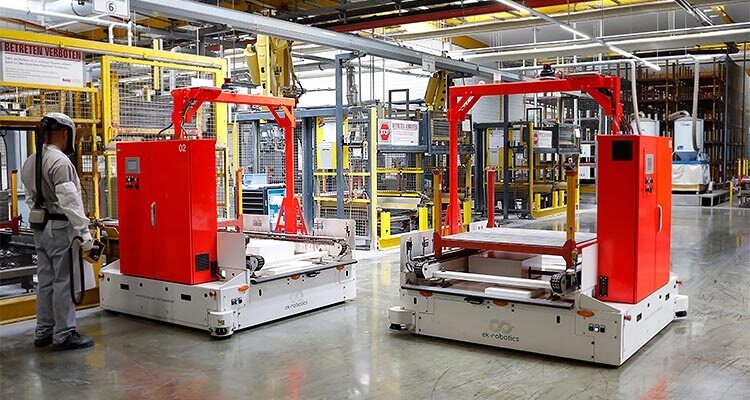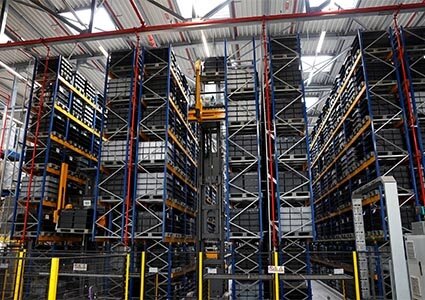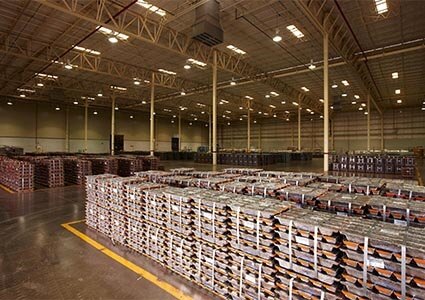
Take a closer look at how Clarios has mastered the circular economy for the energy storage sector
A quick Google search will show that there are currently over 1.47 billion cars out in the world. In approximately every third car worldwide, a low-voltage battery from Clarios is installed. This makes Clarios one of the largest and most successful companies in the circular economy, producing more than 150 million car batteries every year.
Across its history, Clarios, a global leader in energy storage, has consolidated various automotive battery companies into one. In a conversation with Marc Andraca, Vice President of Global Sourcing & Supply Chain, we learn about the company’s evolution, and how it continues to dominate the sector. Five years ago, Clarios became an independent entity from Johnson Controls, transitioning into a pure-play energy storage company under private equity ownership.
Vice President of Global Sourcing & Supply Chain, we learn about the company’s evolution, and how it continues to dominate the sector. Five years ago, Clarios became an independent entity from Johnson Controls, transitioning into a pure-play energy storage company under private equity ownership.
This amalgamation then allowed Clarios to capitalize on its rich heritage and the organic growth experienced over the years. Marc highlights the pivotal role the company plays in the current automotive landscape and shares the increasing complexity of vehicles and the growing demand for robust, low-voltage networks with batteries. “We work an impressive high percent recyclability rate. Up to 99 percent of a car battery can be recycled and we have solidified this standing as an indispensable player, supplying about one in every three cars on the global road scape.”
Scaled-up sustainability
One of the company’s unique traits is its passion for sustainability, which has opened opportunities for an impressive circular economy. “Companies that are serious about a circular economy are committed to continuously increasing the level of reuse of materials out of their own economic interest, so that when something dies, it doesn’t end up in the grave, but is transformed into something new.
“However, when we talk about circularity, we talk about how 99 percent of our content can be reused, repeatedly for our own new products. And it’s not a degraded product either. We return it to the same quality each time – again and again. Another strength we pioneered for the industry is that our commercial models are designed to ensure this circularity. So, if you want to purchase a battery, returning the existing one will mean you are better off from a price standpoint. Furthermore, in North America and Europe, we also facilitate the movement of that waste through the loop and back to manufacturing again. To the best of my knowledge, I don’t think there’s another industry that is as completely circular as we are,” Marc proudly shares.
The bigger question is how is Clarios able to make such a widespread and complex loop possible? According to Marc, it is because the company understands the loop, and subsequently manages it in-house. “Our level of knowledge control expertise is enormous. In fact, we’re literally the only ones who can build and recycle our batteries the way we do. There are people out there that recycle only, and there are people that transport only, and sometimes there are people that transport and recycle. But I don’t think any of them are as big as we are. So, just the sheer scale of our operation distinguishes us.”
Operational opportunity
In probing the depths of Clarios’ circular economy, Marc gives greater insight into how the circular economy capabilities have evolved across the company’s tenure. To this, he highlights that the landscape has always been shifting, but today that pace is especially rapid. By nature, Clarios’ products require a heightened material content, signaling a surge in the demand for recycling capabilities. Coupled with this, recycling emerges as an opportunity for Clarios’ operations, necessitating an expansion of its recycling capacity in key markets.
Unique culture
But what really makes this journey intriguing is the critical point in the process from where the company takes its advantage. Marc shares that, conventionally, the circular loop’s significance lies predominantly in the post-use phase, and for Clarios, it’s just the beginning. “We have an entire commercial opportunity that we’ve just not even thought of,” Marc says. The focus shifts from just selling batteries to crafting an enhanced customer experience, placing a spotlight on the return and recycling phase.
 This shift in perspective has also buttressed the company’s recruitment strategy and has brought in some brilliant minds to help propel the process. “The caliber of people who are interested in what we do has changed hugely,” Marc attests, emphasizing the allure of contributing to this high level of circularity and sustainability in the industry. This, he notes, is a pivotal aspect of the evolving trajectory that Clarios is navigating; attracting a diverse and passionate pool of professionals who see beyond the usual scope of manufacturing.
This shift in perspective has also buttressed the company’s recruitment strategy and has brought in some brilliant minds to help propel the process. “The caliber of people who are interested in what we do has changed hugely,” Marc attests, emphasizing the allure of contributing to this high level of circularity and sustainability in the industry. This, he notes, is a pivotal aspect of the evolving trajectory that Clarios is navigating; attracting a diverse and passionate pool of professionals who see beyond the usual scope of manufacturing.
On the topic of people, we then turn the conversation towards company culture, and Marc highlights that the business works just as hard on its company culture to ensure it secures the excellent team it’s attracting. “Although we’re an incredibly large business, we also maintain a family-like, strangely startup feel. The reason I can say those things is that when you are carved out of a larger multinational enterprise, you realize all the things that are unique about what you do, and your community becomes smaller. You also realize all the things you don’t have that you used to get from your corporate parent that you must now invent and figure out for yourself. The processes, the systems, the traditions; you expect them all to be replicated overnight, but that’s not the case. They take time and experience to mold. So, we’re essentially somewhere between a 100-year-old and a five-year-old company, at the same time, which, I think, makes us a really interesting and engaging place to work.
“We’re also at the intersection of an incredible technological change in our industry. This means that the rules of engagement, the opportunities, the possibilities are widening, which is why I say it’s strange to think of us as a startup, but that’s how I feel. I think that the culture we’ve been fortunate to establish is largely owed to the history that brought us here. It’s given the wisdom of a more stable, settled business, yet we still have the youthfulness of a young and innovative startup that is continually inspired by the opportunities of the industry, and I think that gets a lot of us really excited about being here,” Marc shares.
Innovation and determination
The culture of the business is driven by a few core values: committed, customer centric, principled, challenge the status quo and win together. Furthermore, Marc highlights that across the organization, the team’s mission is well-known and helps encourage a united and closely-knit ethos. “We develop insightful ideas and turn them into impactful realities. We anticipate the needs of customers and the markets we serve and deliver solutions with agility and flexibility – that’s what we do! But we couldn’t do it without the people here who know and believe in how to make that mission possible.”
The conversation then closes on the topic of recognition of the company’s achievements, and how the growth of its history is a testament to the innovation and determination of the Clarios team. “Supply chain is a huge conversation in our space. It’s not just about producing a product in a state-of-the-art and efficient facility and shipping it to the customer. It’s about taking that practice to the rest of the world, and we’re really proud of that. We’re doing this across Europe, in America, North America, South America, and Asia, and that’s pretty cool,” he concludes.
Enduring essentiality
The essence of Clarios’ success and its trajectory for the future solidifies as Marc shares what he hopes for the company’s longevity. Marc underscores the company’s enduring essentiality, and predicts a landscape where vehicles, a decade and well beyond, will still rely on low voltage networks, and Clarios aims to be at the forefront, not just in building batteries but in managing systems and introducing new services.
Looking ahead, Marc envisions an expansive scope for growth, emphasizing that there’s much more to be accomplished across various sectors. The conversation leaves an indelible impression; a company that understands its niche, is poised for significant expansion, and thrives on the ethos of continuous innovation.
It is clear from our conversation that Marc is proud of the company’s global reach and acknowledges the achievement of seamlessly orchestrating a vast and robust supply chain. The success story of Clarios proves how the diligence of a team committed to excellence in the circular economy can lead to abundant success, and serves as an example of how opportunity, when recognized, can kickstart a new sector of industry solutions.